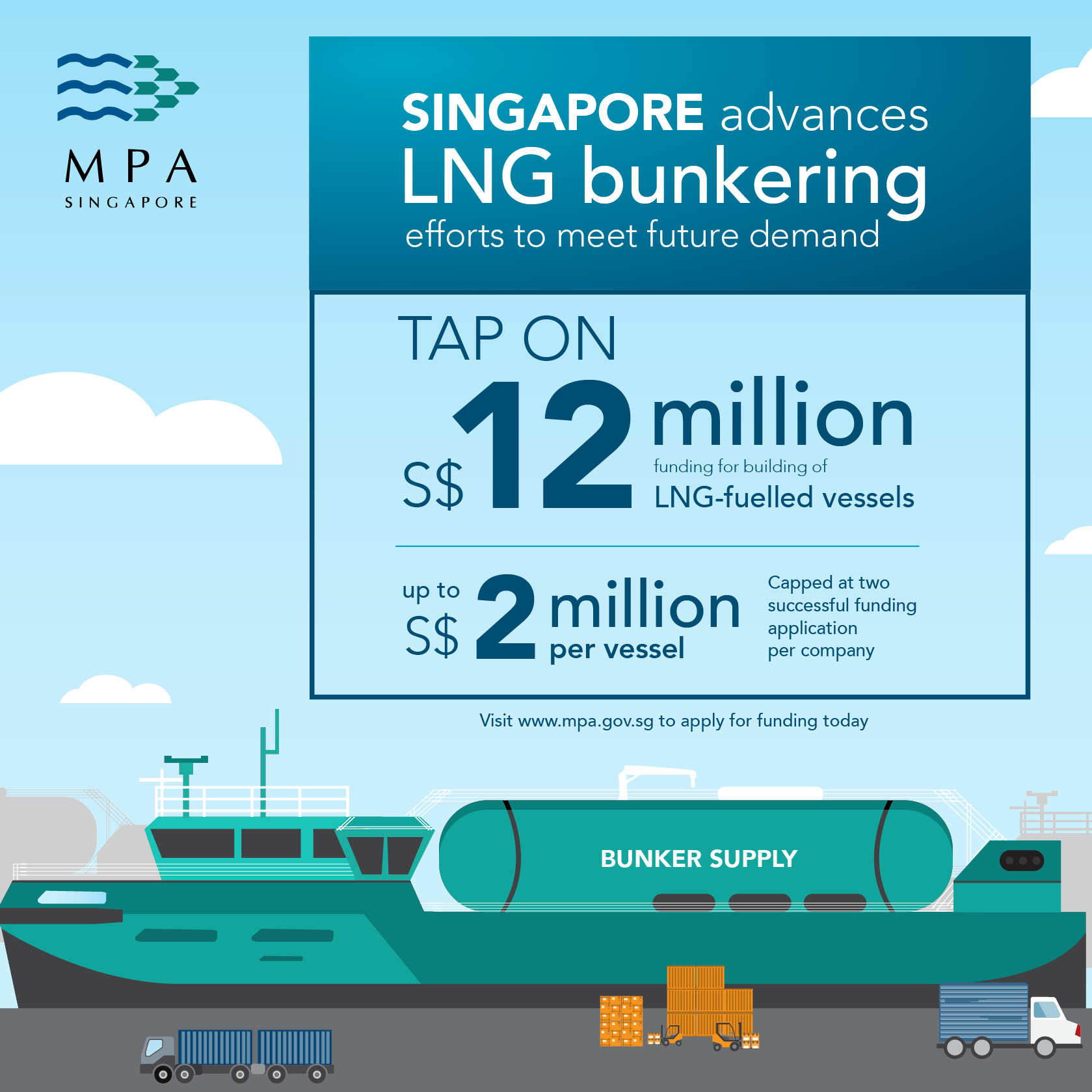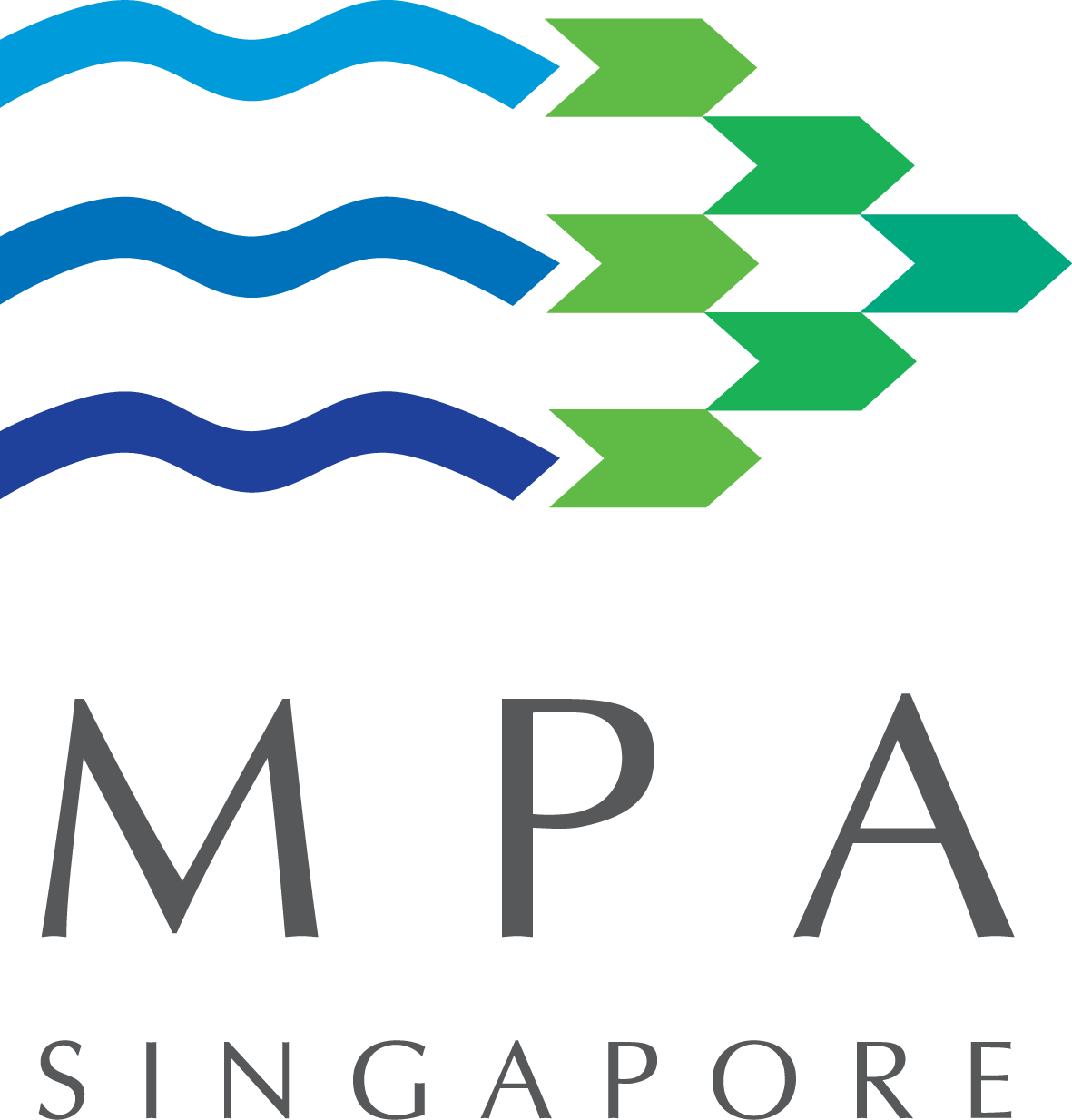Singapore advances LNG bunkering efforts to meet future demand
Published 30 Sep 2015
30 September 2015
The Port of Singapore is inviting interested companies to tap on a S$12 million fund, from the MPA's "Maritime Innovation & Technology Fund" ([1]MINT Fund), for the building of LNG-fuelled vessels. The MPA will provide funding of up to S$2 million per vessel, capped at two successful funding applications per company.
Applications are now open and interested applicants may find the application form, together with the criteria and funding guidelines at the following link: Co-funding Grant Application Form for LNG Fuelled Vessels
Companies must be incorporated in Singapore, and the funded vessels must be flagged under the Singapore Registry or licensed for activity in Port of Singapore for a period of at least five (5) years.
MPA has been collaborating closely with partner agencies, industry stakeholders and technical experts, to develop LNG bunkering standards, procedures and infrastructures. On 28 July 2015, MPA announced its Request for Proposal (RFP) for interested parties to apply for the LNG bunker supplier licence that would allow the licencee to supply LNG bunkers to vessels in the Port of Singapore.
In 2014, Singapore's bunker industry recorded more than 42 million tonnes in bunkers sales volumes, maintaining her position as the world's top bunkering port.
___________________________
[1] The MINT Fund encourages local and foreign companies with a local presence to undertake maritime-related R&D, using Singapore's port and maritime facilities as the test-bed for their innovations. MINT Fund funds up to 50% of the project costs and is available to companies that are incorporated in Singapore, either owned by local or foreign shareholders (and subject to the provisions of the Companies Act (Cap.50)), and engaged in either R&D into or test-bedding in Singapore of new or better products, processes and applications relevant to the maritime industry.
Singapore advances LNG bunkering efforts to meet future demand
Port of Singapore offers S$12 million funding for building of LNG-fuelled vessels
The Port of Singapore is inviting interested companies to tap on a S$12 million fund, from the MPA's "Maritime Innovation & Technology Fund" ([1]MINT Fund), for the building of LNG-fuelled vessels. The MPA will provide funding of up to S$2 million per vessel, capped at two successful funding applications per company.
Applications are now open and interested applicants may find the application form, together with the criteria and funding guidelines at the following link: Co-funding Grant Application Form for LNG Fuelled Vessels
Companies must be incorporated in Singapore, and the funded vessels must be flagged under the Singapore Registry or licensed for activity in Port of Singapore for a period of at least five (5) years.
MPA has been collaborating closely with partner agencies, industry stakeholders and technical experts, to develop LNG bunkering standards, procedures and infrastructures. On 28 July 2015, MPA announced its Request for Proposal (RFP) for interested parties to apply for the LNG bunker supplier licence that would allow the licencee to supply LNG bunkers to vessels in the Port of Singapore.
In 2014, Singapore's bunker industry recorded more than 42 million tonnes in bunkers sales volumes, maintaining her position as the world's top bunkering port.

Infographic - Port of Singapore offers S$12 million funding for building of LNG-fuelled vessels
< End of Release>
___________________________
[1] The MINT Fund encourages local and foreign companies with a local presence to undertake maritime-related R&D, using Singapore's port and maritime facilities as the test-bed for their innovations. MINT Fund funds up to 50% of the project costs and is available to companies that are incorporated in Singapore, either owned by local or foreign shareholders (and subject to the provisions of the Companies Act (Cap.50)), and engaged in either R&D into or test-bedding in Singapore of new or better products, processes and applications relevant to the maritime industry.
